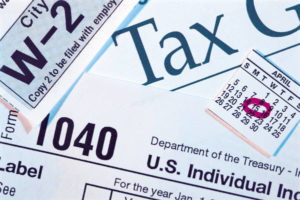 A 1031 Exchange allows you defer your taxes due on the sale of your property.
A 1031 Exchange allows you defer your taxes due on the sale of your property.
A 1031 Exchange is a legal option that will help you grow your assets. If your property qualifies and you use those proceeds to purchase another acceptable property it is possible. Of course, there are specific guidelines that must be followed but a 1031 Exchange is a fantastic option that you should consider taking advantage of if it works for you.
Does your property qualify for a 1031 Exchange?
The guidelines for a 1031 Exchange are ever changing and it is always best to discuss your specific circumstances with a Qualified Intermediary Company but here are some general rules for residential properties.
- Typically, you must have owned the property for at least 24 months immediately prior to the exchange. There are some exceptions to this rule. If you have owned the property for less than 2 years check with your advisor to see if one of the exceptions might fit your circumstances. In addition, you must own the new property for 24 months after the exchange. If you are planning to do a quick flip, a 1031 Exchange is probably not the best option.
- For two of the five years prior to the sale, the owner must rent the property to another person or persons at a fair rental price for 14 or more days. Also, the owner’s personal use cannot exceede 14 days or 10% of the number of days the property is rented. Personal use is also use by family members, a trade, or charging below market rents. This requirement rules out many second homes that have a lot of owner use.
Additional 1031 Exchange requirements
You must follow additional rules for the sale and subsequent purchase after determining if your current property qualifies.
- A Qualified Intermediary must hold the proceeds from the sale. If that money goes into your bank account between transactions it becomes your gain and you must pay capital gains. With that in mind, you must have a company hired before completing the sale of your property. You cannot make a decision to do an Exchange after the fact. If you’re not sure if your property qualifies, talk to a qualified company and find out now.
- There are time limits you must meet on your purchase. You have 180 days to complete your purchase. That includes 45 days to identify in writing which possible properties you might purchase. There are qualifications for the properties you identify and the date you file your taxes may affect your time limits so be sure to discuss these with your exchange company.
- The purchase price of your replacement property must be equal to or more than the relinquished property’s sale price.
As you can see, there are plenty of guidelines you must follow to create a safe harbor for a property exchange. Even so, it is a relatively painless way to keep from sending Uncle Sam a good part of your gain. You can also do a delayed exchange, a partial exchange or a reverse exchange so if you aren’t sure if you may qualify, it’s worth a call to find out for sure.
Qualified Intermediaries
To find out if your property qualifies talk to your accountant or a Qualified Intermediary (QI). Below are a few companies we recommend. We are not affiliated with any of these companies and are not responsible for their actions. They are companies that our clients have had good results with in the past. You should do your own due diligence before choosing a company to work with.
Asset Preservation Incorporated www.apiexchange.com 800-262-1031
The 1031 Exchange Experts www.expert1031.com 866-694-0204
1031 Exchange Professionals www.1031cpas.com 888-367-1031
Land Title Exchange Corporation www.landtitleexchangecorporation.com 303-850-4197
Return to Sellers Page

